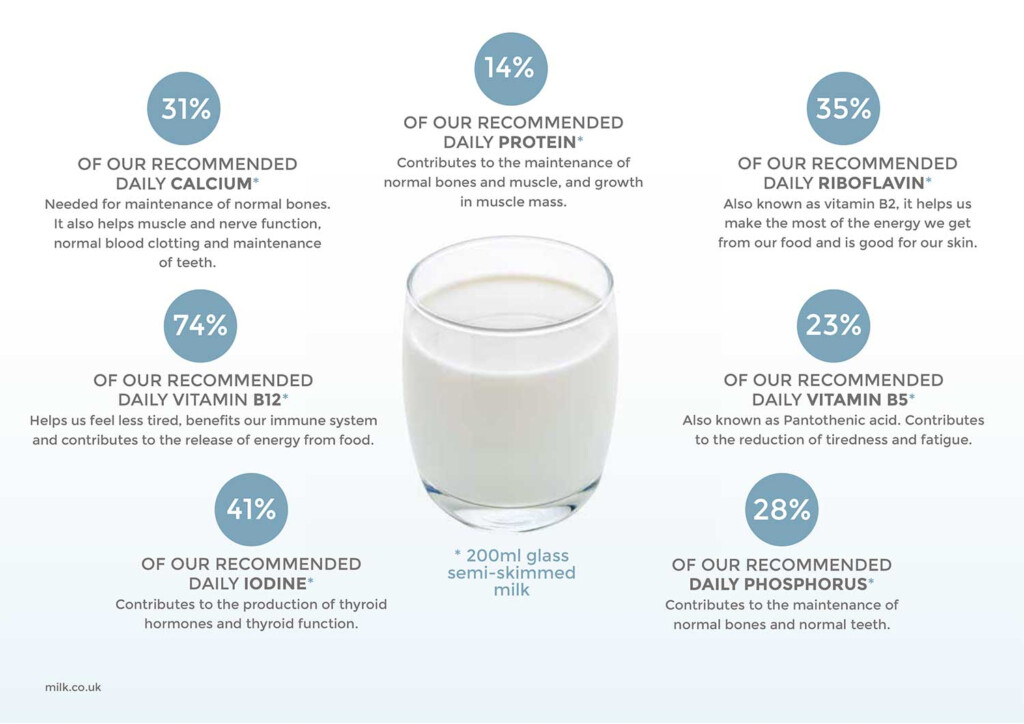Milk is a nutrient-rich beverage that provides a variety of essential nutrients for overall health. It is a great source of calcium, which is important for bone health and development. Additionally, milk contains protein, vitamin D, vitamin A, and potassium, making it a well-rounded choice for a healthy diet.
Consuming milk can help support a healthy immune system, promote muscle growth and repair, and contribute to overall well-being. It is also a versatile ingredient that can be used in a variety of recipes, from smoothies and oatmeal to soups and sauces.
Nutrition Information Of Milk
Nutritional Content of Milk
One cup of whole milk contains approximately 150 calories, 8 grams of fat, 12 grams of carbohydrates, and 8 grams of protein. It also provides 30% of the recommended daily intake of calcium, 25% of the recommended daily intake of vitamin D, and 10% of the recommended daily intake of potassium.
Low-fat and skim milk options are also available for those looking to reduce their fat intake. These varieties provide similar nutritional benefits with fewer calories and less fat. It is important to choose milk that fits your dietary needs and preferences while still providing essential nutrients.
Incorporating Milk Into Your Diet
There are many ways to incorporate milk into your diet to reap its nutritional benefits. Enjoy a glass of milk with breakfast, use it as a base for smoothies, or add it to your morning coffee. Milk can also be used in cooking and baking to add creaminess and richness to dishes.
Whether you prefer whole milk, low-fat milk, or plant-based milk alternatives, incorporating this nutritious beverage into your daily routine can help you meet your nutritional needs and support overall health and well-being.
